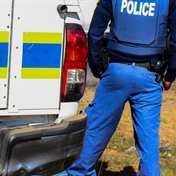Senior economist at Old Mutual Johann Els said International Monetary Fund head Christine Lagarde’s warning that emerging markets would remain “disappointing and patchy” in 2016 was not good for the rand.
Most investors would have to wait until the middle of this month to see whether the panicked sell-off of African currencies in the past month would continue, he added.
Els said Old Mutual, an international investment, savings, insurance and banking group, anticipated that there would be some scope for the rand to stabilise this year. He expected the currency to level out at R14.50 to the dollar, despite opening at R15.53 on Thursday morning.
“We do think there’s some scope for the rand to stabilise during the next year. Any forecast will probably be wrong because politics and the economy are not certain, but we do think there will be some stabilisation.
“At the moment, we think the rand can only end 2016 at around R14.50 to the dollar. That’s not really strong, but it’s an indication of some stabilisation. We don’t think it will go up to R16 or R17 in the short term,” he said.
Els also expected the crude oil price, which hit record lows of $36.70 on Thursday, to rally back up to $55 by the end of 2016 because the US interest rate hike had not severely dented the global economy, while Chinese markets were also stabilising.
Oversupply of oil from big producers such as Libya, Iraq and Russia, coupled with extra supply from Iran, which recently came back on stream, meant the price was set to remain lower in the first half of the year.
“The oil price is good news for the local petrol price and it’s saving us a lot because, had it been higher, with the weak rand, we would have seen significant petrol price increases. For now, it’s good, but we do see a peak to $55 per barrel by the end of 2016. That is especially difficult to forecast because the global economy is doing a little bit better – but it seems that there’s so much extra supply.
“We do see some recovery in the oil price, but nothing dramatic, certainly nothing close to the levels of $110 per barrel soon because of that overproduction, and the Iran supply coming back online,” he said.
Lagarde’s warning that emerging markets were unlikely to look good in 2016 meant the rand was likely to also remain weak.
“If emerging markets as a whole remain weak, that means the rand will also remain weak, but the reason we think there will be some stabilisation in the rand is that the rand has weakened so much more than all the other emerging market currencies.
“The rand is already a whole lot weaker, but pressure will remain on commodity- and export-dependent currencies,” said Els.
South Africa would be “lucky” to attain 1.5% economic growth in 2016 because commodity prices were not expected to change.
“At best, the prices of commodities will stabilise. A range of other factors, including the reasons given by ratings agencies to downgrade South Africa – particularly the lack of economic growth – will have an effect on the currency and our economy as a whole.
“We would be lucky to get 1.5% in 2016, but the lack of economic growth is bad for us, and the fact that foreign trade and current account deficits remain large means we’re dependent on foreign investors to make up that shortfall,” added Els.
The fact that South Africans did not save enough money meant the country’s economy would depend on foreign investors for South Africa to close the shortfall caused by the deficit.
But with investor confidence low, growing uncertainty in the markets about South Africa’s economic policy and the recent reshuffling in Treasury, investors were likely to look elsewhere to spend their money.
“When investors see a lack of economic growth and incoherent implementation of economic policies, they are not keen to invest in South Africa, and may look for other opportunities.
“If we can’t finance the deficit because investors are not coming here to finance that deficit, then that will have an impact on the rand,” said Els.
South Africa’s low position on the global competitiveness index meant that investors, local and foreign, were likely to consider “expensive, unskilled and uneducated labour, and militant unions before expanding their operations in South Africa”.




 Publications
Publications
 Partners
Partners








